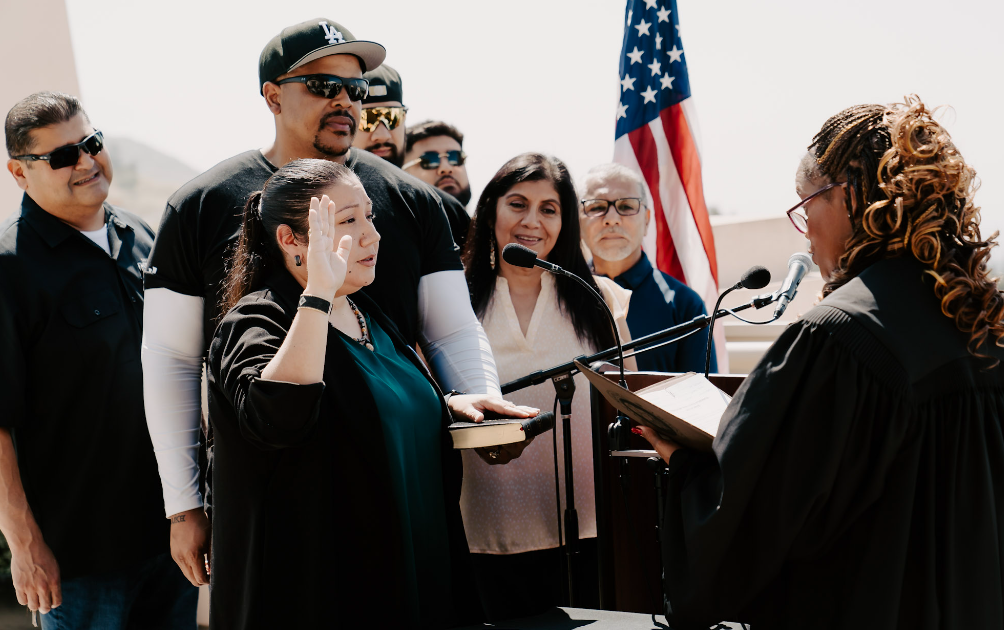By Rhonda Smith | Special to California Black Media Partners
In 2008, I received news no one ever wants to hear. I was diagnosed with Stage I breast cancer, with an ER/PR positive tumor type.
The road to recovery was tough, taking more than a physical toll on my body. I grappled with the emotional and mental strain of navigating a health care system that too often fails to address the unique needs of Black women. There was no manual to guide me through this journey, no prescription to ease the burden, and no roadmap to help me navigate the challenges ahead.
The stark reality that Black women are 41% more likely to die from breast cancer than White women is a grim reminder of the systemic inequities that pervade our health care system. According to the American Cancer Society, Black Americans have the highest death rate and shortest survival rate of any racial or ethnic group in the country. This disparity extends beyond breast cancer, impacting colorectal, prostate, and lung cancers, among others.
To help overcome these inequities, we need to attack cancer at its roots; we must catch it early, and we must ensure the means to catch cancer early are accessible to the communities most at risk. I consider myself fortunate to have received a Stage 1 diagnosis. Yet, it pains me to know that for many others, their breast cancer is often detected in later, more advanced stages. It is a sobering reality – one that underscores the need for action.
Fortunately, there is hope on the horizon. Some California congressmembers — particularly U.S. Rep. Raul Ruiz (D-CA-25) — are taking decisive action. Ruiz is a lead sponsor of a bill to dramatically expand access to cutting-edge early detection tools for Medicare beneficiaries, including millions of Black Americans in underserved communities. With bipartisan support from a strong majority of his colleagues in Congress, as well as many of our state’s representatives, this bill is closer than ever to passage.
Named in honor of Nancy Gardner Sewell, a civil rights leader and passionate advocate for health justice, the Nancy Gardner Sewell Medicare Multi-Cancer Early Detection Screening Coverage Act would ensure Medicare has the latitude it needs to cover an exciting new class of cancer detection tests as soon as they’re cleared by the FDA.
These tests utilize the latest scientific achievements to identify cancer signals in a patient’s blood stream. They can pinpoint many different types of cancer from a single blood draw, dramatically improving doctors’ ability to detect cancers early and at stages where they are most treatable.
The importance of early detection in improving cancer outcomes cannot be understated, especially for African Americans, who often face later-stage diagnoses and poorer prognoses.
A recent study estimates that preventive cancer screenings in the past 25 years have given Americans at least 12 million more years of life, translating to a remarkable $6.5 trillion saved in health care costs. Too many cases are diagnosed after the cancer has spread and treatments, no matter how advanced, are less effective. And even for those forms of the disease, like breast cancer, for which there are screenings, patients can remain asymptomatic until the cancer has metastasized.
That’s why MCED tests are such a game changer, especially when it comes to cancers we currently can’t detect.
Any health care provider that can draw blood already has the tools to administer an MCED test. One of the largest obstacles to the widespread adoption of these tests isn’t technical – it’s the fact that Medicare has no pathway to cover new cancer screenings like MCED in a timely manner, even though people over the age of 65 are at the greatest risk of developing cancer. Without the possibility of Medicare coverage, MCED tests won’t be available for the underserved and older adults who would benefit the most.
The next phase of our fight against cancer – and the disproportionate toll it takes on Black Americans – starts by urging Congress to pass the Nancy Gardner Sewell Medicare Multi-Cancer Early Detection Screening Coverage Act and ensuring the benefits of this legislation reach all corners of our communities.
I don’t advocate for change for myself, but for every Black woman who has faced, or will face, a similar battle. Please heed my words – for yourself and your health. Ask for the necessary tests or screenings. If you’re unsatisfied with their response, don’t hesitate to seek a second opinion. We’ve got the power to take control of our health.
Together, we can rewrite the narrative of health care, catch and treat cancer early, and ensure that every woman has the opportunity to thrive, regardless of her race or background.
About the Author
Rhonda Smith, Executive Director of the California Black Health Network, leads initiatives to advance health equity for Black Californians, leveraging her expertise from roles including consulting and spearheading health disparities initiatives for BIPOC communities. With an MBA from the University of Virginia’s Darden School of Business and a B.S. in Civil Engineering from Virginia Tech, Rhonda has led transformative projects like the LiveHealthy OC Initiative and the Susan G. Komen® Circle of Promise California Initiative to address health disparities and promote whole person care approaches.
 Westside Story Newspaper – Online The News of The Empire – Sharing the Quest for Excellence
Westside Story Newspaper – Online The News of The Empire – Sharing the Quest for Excellence

